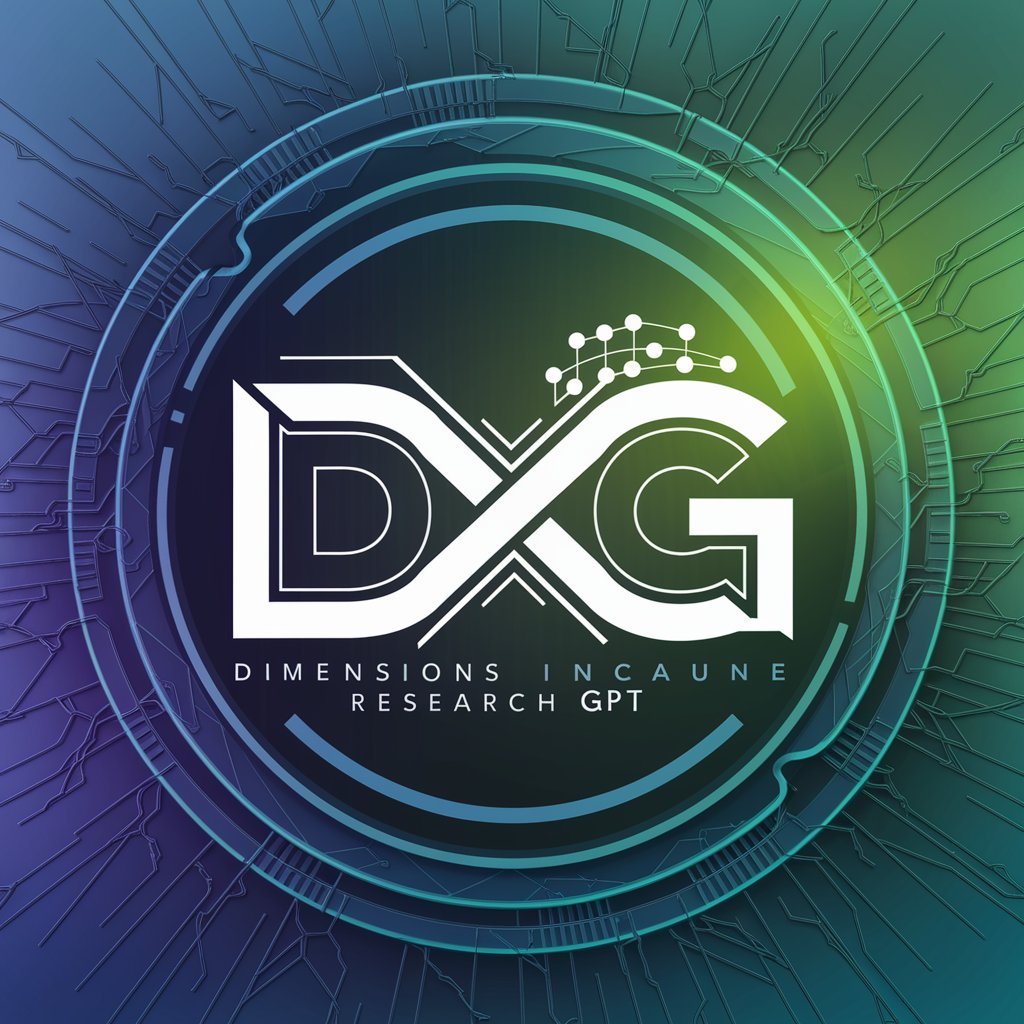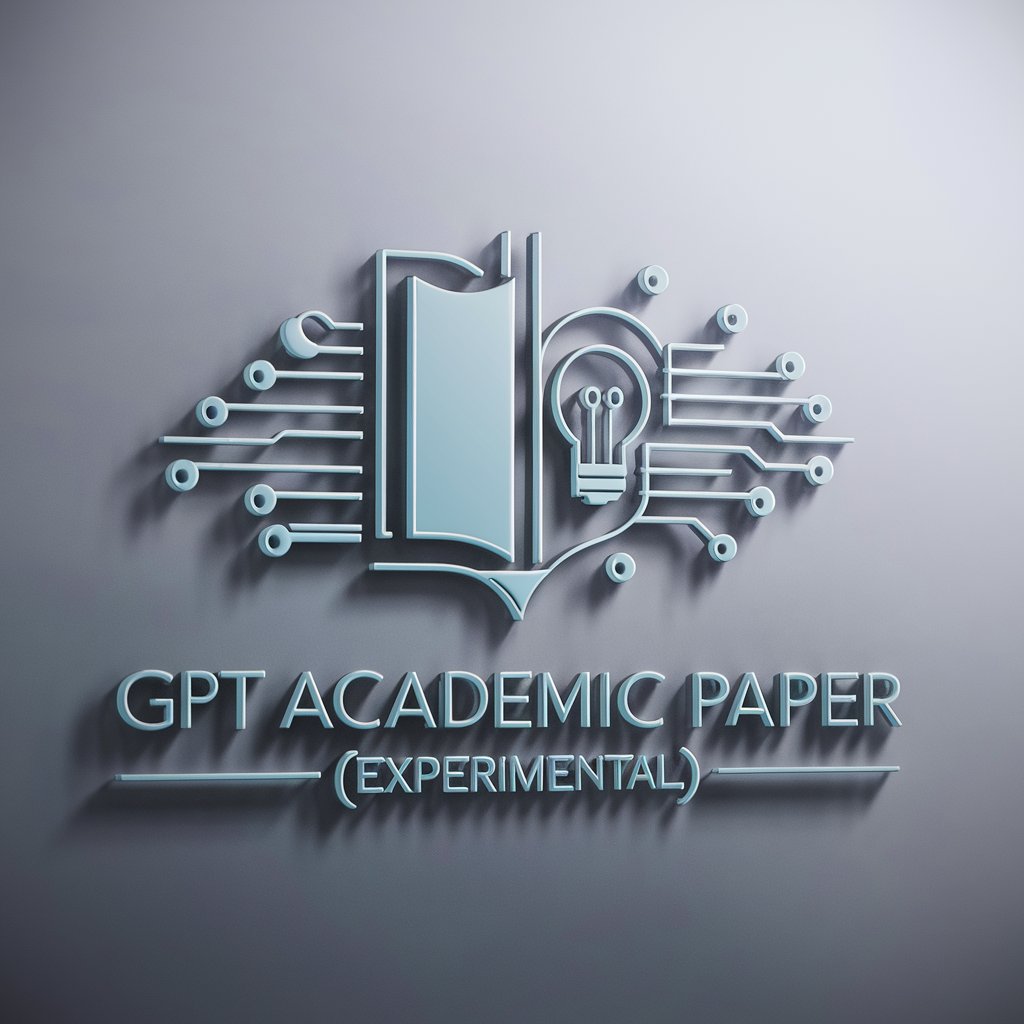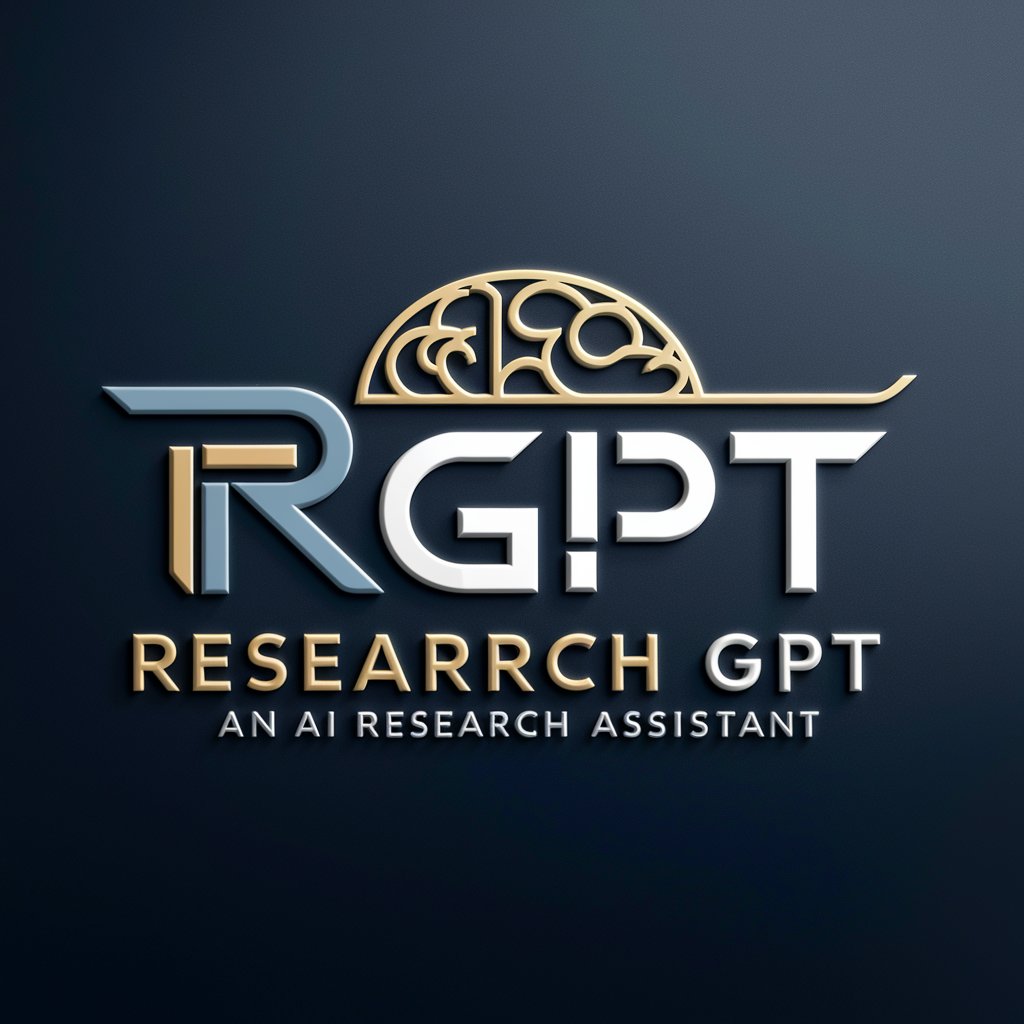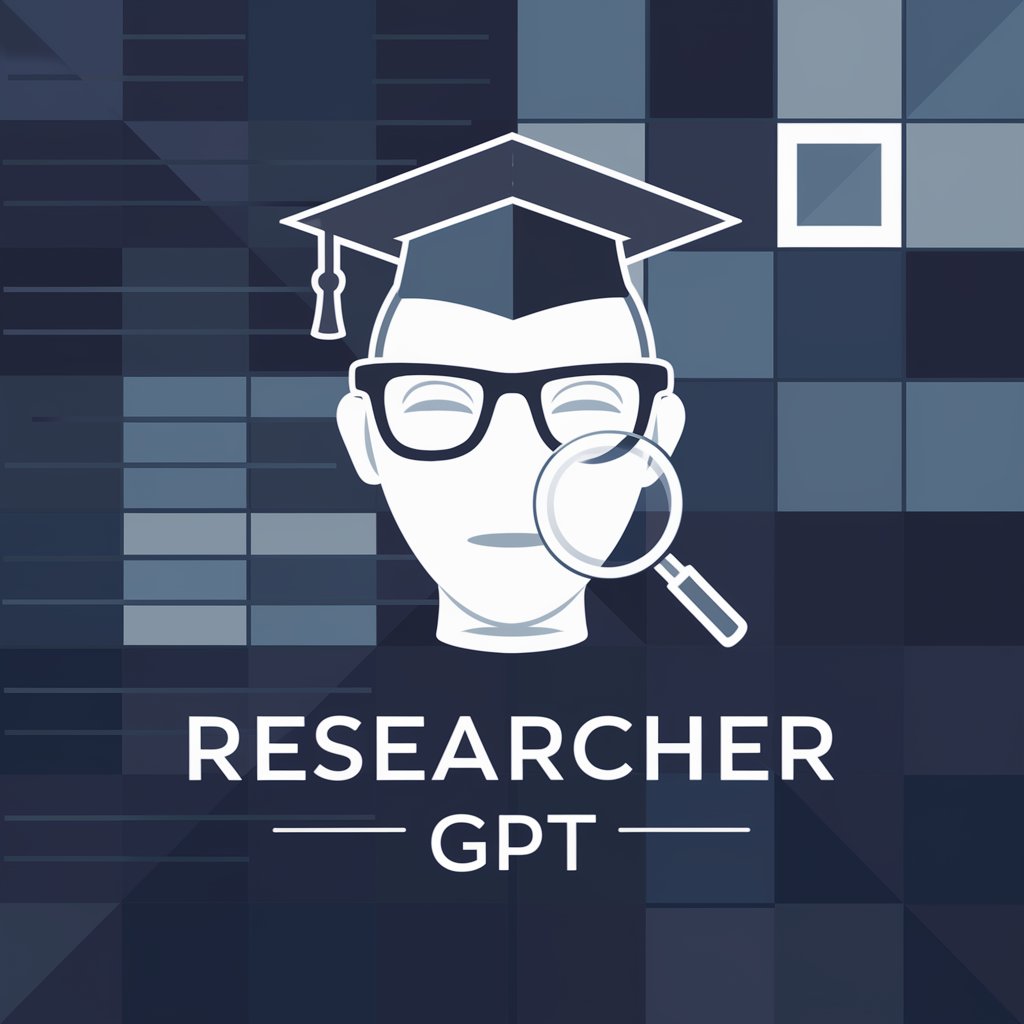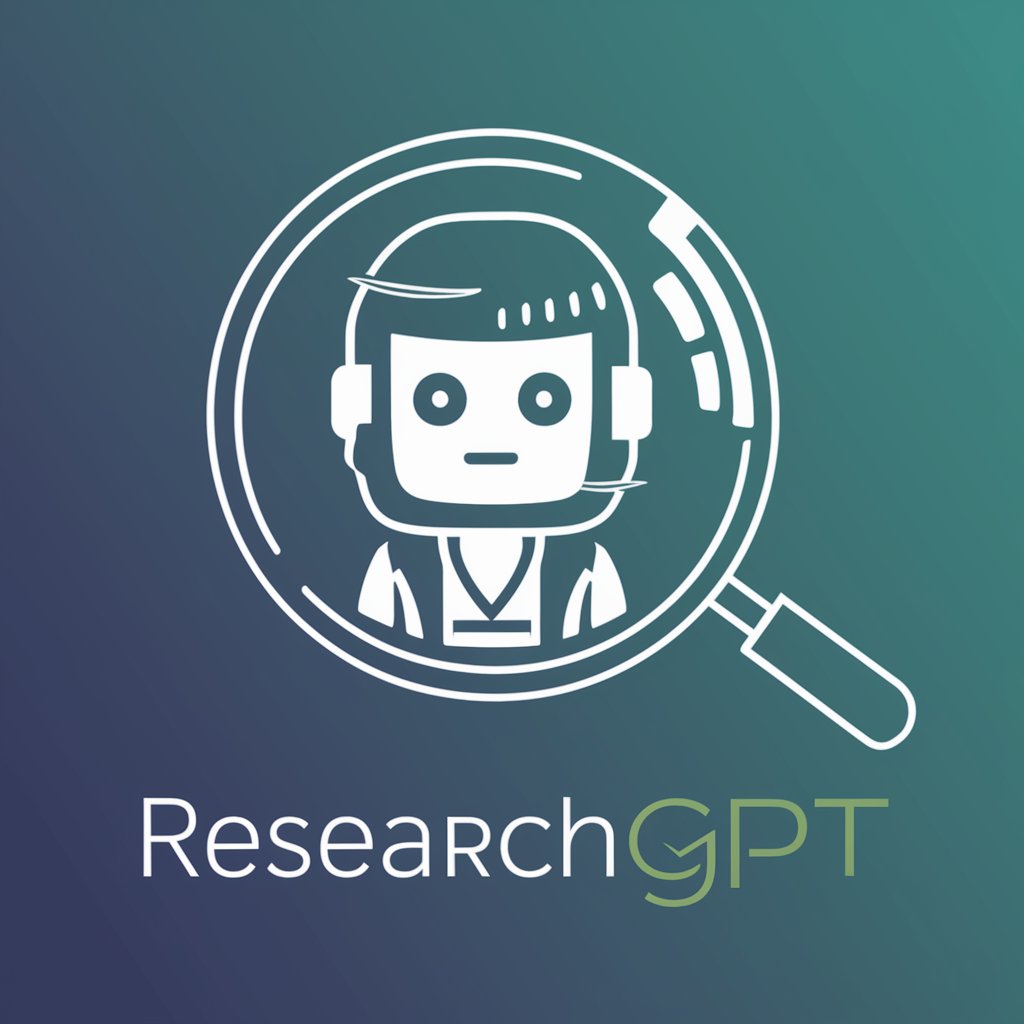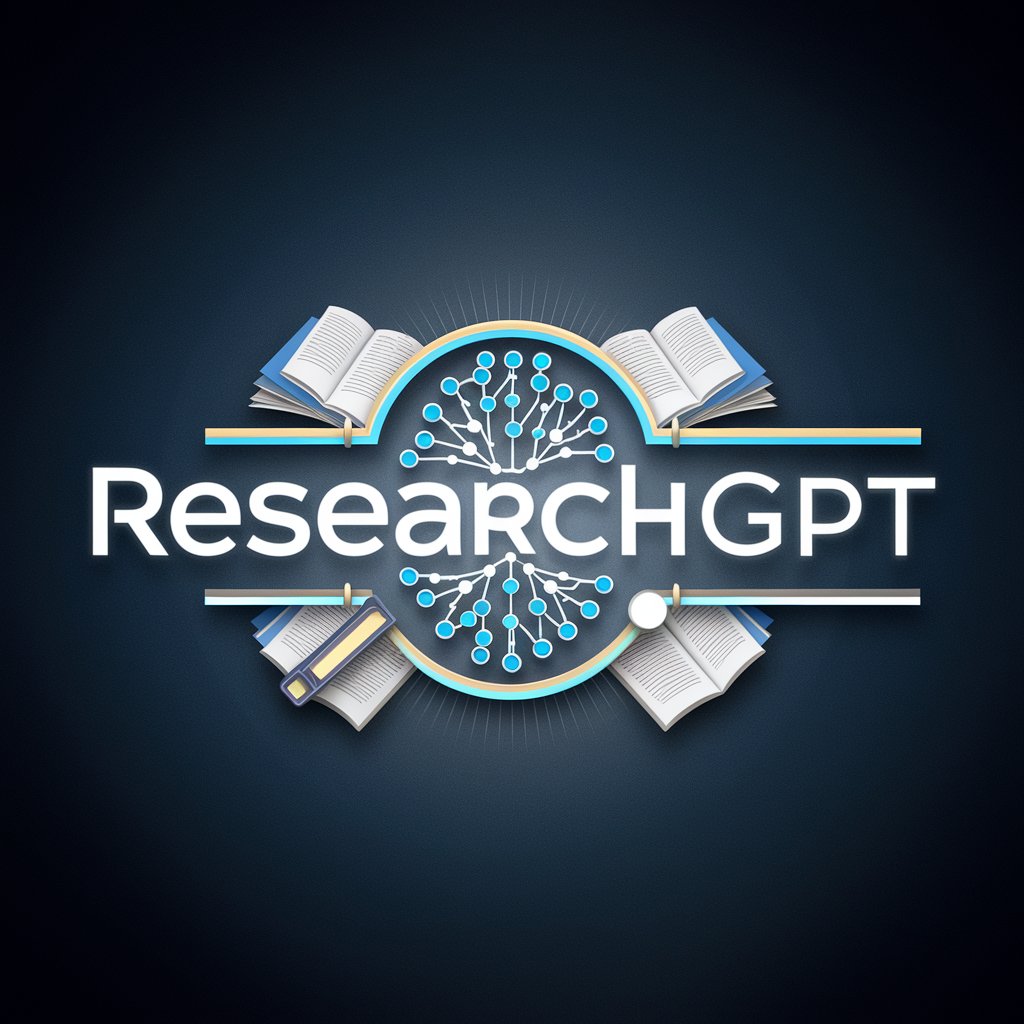
Research GPT - AI-powered Research Tool
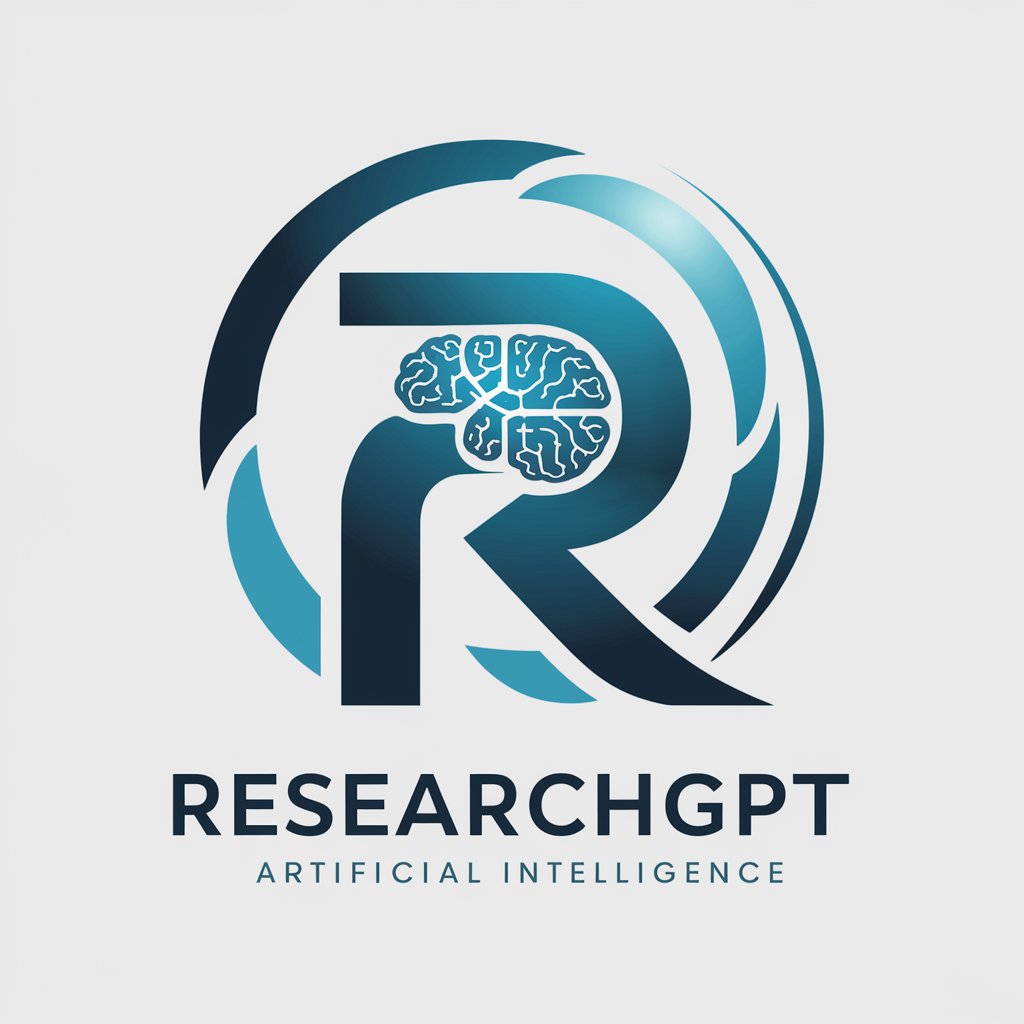
Welcome to ResearchGPT, your source for thorough and reliable research.
Empowering Research with AI
Can you provide an in-depth analysis of...
What are the latest peer-reviewed studies on...
Please summarize the findings from recent research on...
Could you elaborate on the historical context of...
Get Embed Code
Overview of Research GPT
Research GPT is an advanced variant of the Generative Pre-trained Transformer models, designed to enhance the accessibility and quality of information across various research and inquiry-based tasks. It combines natural language understanding and generation capabilities with specialized features to support in-depth research, data analysis, and content creation. By leveraging vast amounts of information and sophisticated algorithms, Research GPT can parse, synthesize, and present complex data in a user-friendly manner. For instance, it can generate summaries of academic papers, translate technical jargon into layman's terms, or provide detailed explanations of complex concepts. This capability is particularly useful in scenarios where users seek quick insights from dense material or require assistance in navigating the vast landscape of available information. Powered by ChatGPT-4o。

Core Functions of Research GPT
Summarization
Example
Summarizing lengthy academic papers into concise abstracts.
Scenario
A student uses Research GPT to quickly grasp the main findings and methodologies of a comprehensive study on climate change without reading the entire document.
Question Answering
Example
Providing detailed answers to specific queries based on a broad spectrum of knowledge.
Scenario
A researcher queries Research GPT about the latest advancements in artificial intelligence, receiving a synthesized overview of recent papers, key findings, and emerging trends.
Data Analysis
Example
Interpreting complex datasets and presenting findings in an understandable format.
Scenario
A business analyst inputs raw sales data into Research GPT, which then identifies patterns, predicts future trends, and suggests actionable insights.
Content Creation
Example
Generating informative and coherent articles, reports, or papers on specified topics.
Scenario
A content creator requests Research GPT to produce a comprehensive article on renewable energy sources, including their benefits, challenges, and future prospects.
Language Translation
Example
Translating texts between languages while maintaining accuracy and context.
Scenario
An international organization uses Research GPT to translate a technical report on public health from English to multiple other languages, facilitating broader accessibility.
Target User Groups for Research GPT Services
Students and Academics
This group benefits from Research GPT's ability to distill complex information, analyze data, and generate academic content, supporting their studies, research projects, and knowledge acquisition.
Researchers and Scientists
Professionals engaged in cutting-edge research can leverage Research GPT for literature reviews, hypothesis testing, data interpretation, and writing research papers, enhancing productivity and insight discovery.
Content Creators and Writers
Writers, journalists, and bloggers utilize Research GPT to generate content, brainstorm ideas, and simplify complex topics for their audiences, improving the quality and efficiency of their work.
Business Analysts and Decision Makers
This group benefits from Research GPT's data analysis and summarization capabilities to make informed decisions, understand market trends, and develop strategic plans based on synthesized information.
Educators and Trainers
Educators use Research GPT to create educational materials, develop curriculum content, and provide personalized learning experiences, enhancing engagement and understanding among students.

How to Use Research GPT
Visit for a Free Trial
Start by visiting yeschat.ai to access a free trial of Research GPT without needing to log in or subscribe to ChatGPT Plus.
Identify Your Needs
Determine what you need from Research GPT. Whether it's for academic research, content creation, or data analysis, having a clear objective will streamline your experience.
Explore Features
Familiarize yourself with the tool's features and capabilities. Explore various functions such as voice commands, document generation, and data interpretation to enhance your usage.
Conduct Searches
Use the tool to conduct searches. You can input queries in natural language to find relevant information, academic papers, articles, and more. Utilize filters to refine your searches.
Review and Adapt
Review the generated content or data. You may need to refine your queries based on the results. Research GPT learns from interactions, so feedback improves future responses.
Try other advanced and practical GPTs
Revere Golf Guide
Elevate Your Golf Experience with AI

Professor Sam Wyndel
AI-powered Code Tutoring

Career Path GPT
Explore your potential with AI-powered career coaching.

Brand Architect GPT
Elevate Your Brand with AI Power

ハルカスコープ
Discover Yourself with AI

顔タイプ診断
Discover Your Best Look with AI

Professor de Filosofia
Enhancing philosophy with AI insights
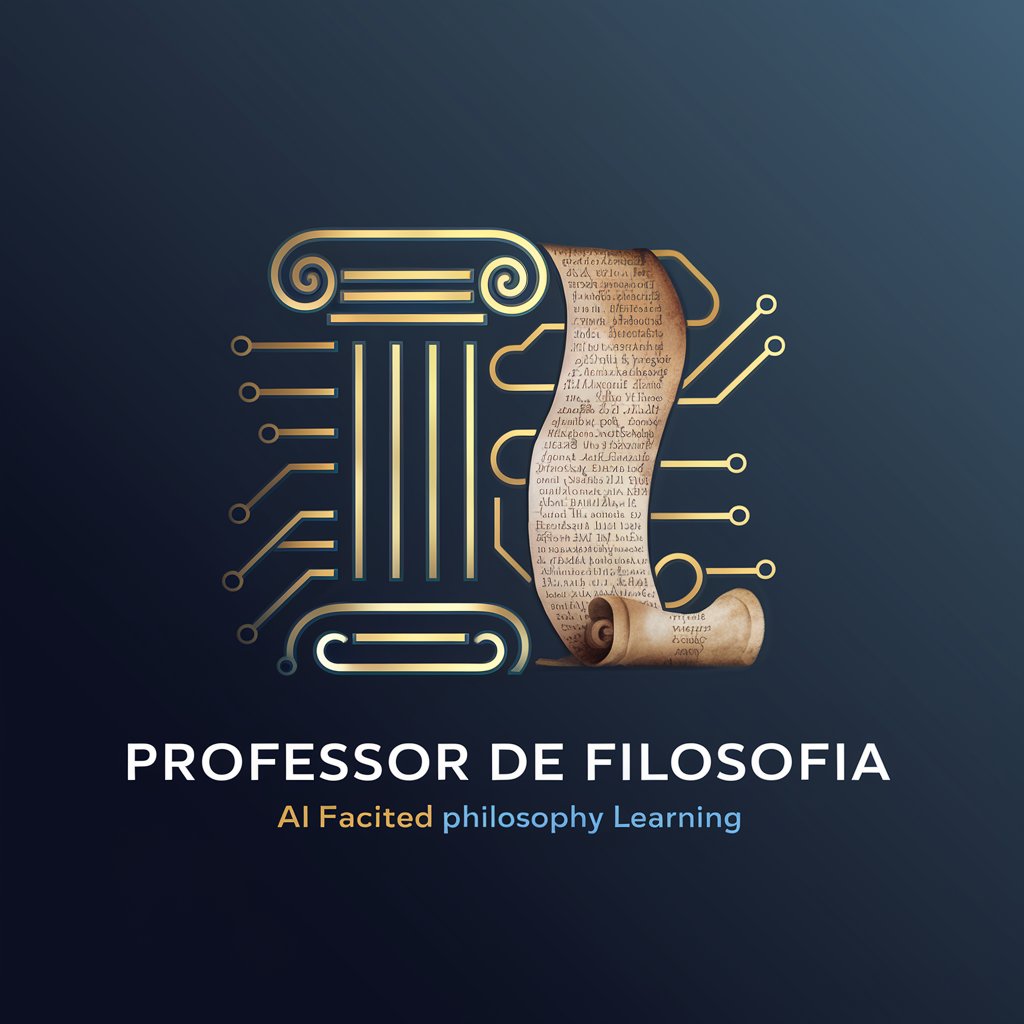
Professor de Fisica e Matematica
Elevating Physics and Math Education with AI

Analista Web SEO
AI-driven SEO Insights for Web Success

Professor de Programação para Crianças
Empowering young minds with AI-driven coding education.

E Posta Yardımcısı
Crafting Professional Emails with AI

Executive Responder
Harnessing AI to craft smarter responses

Research GPT FAQs
Can Research GPT generate academic papers?
Yes, Research GPT can assist in generating academic papers. It can provide outlines, sources, and draft sections. However, it's essential to review and edit the content to ensure accuracy and originality.
How accurate is the information provided by Research GPT?
Research GPT strives to provide accurate information by accessing a wide range of data sources. However, users should verify critical information independently, especially for academic or professional purposes.
Can I use Research GPT for creative writing?
Absolutely. Research GPT is an excellent tool for creative writing, offering ideas, plot suggestions, character development, and stylistic advice to help flesh out stories.
Is Research GPT suitable for market analysis?
Yes, Research GPT can perform market analysis by gathering and synthesizing information on market trends, consumer behavior, and competitive landscapes to aid in strategic decision-making.
Does Research GPT support multiple languages?
Research GPT supports multiple languages, making it versatile for users worldwide. It can process queries and generate content in several languages, broadening its applicability.
